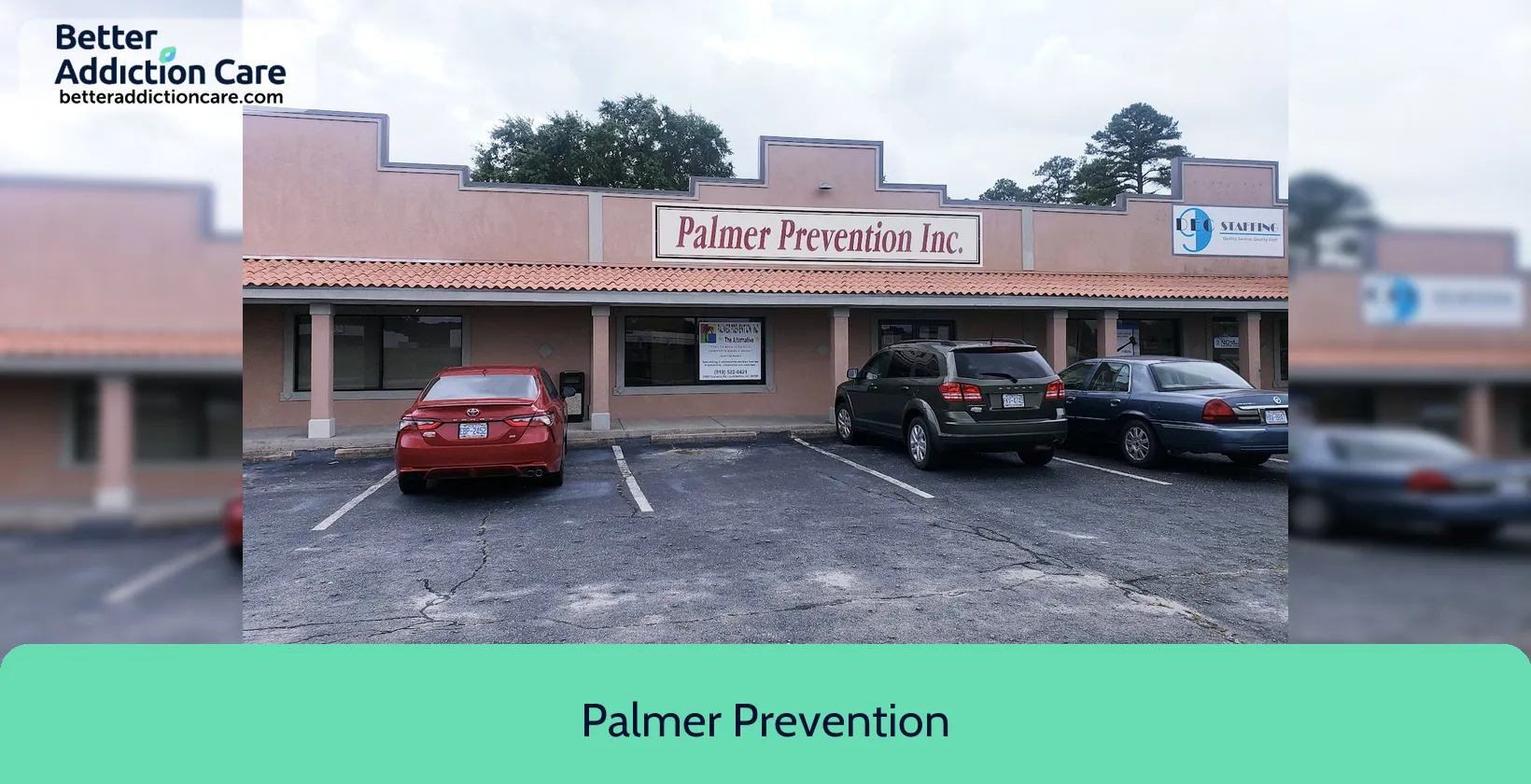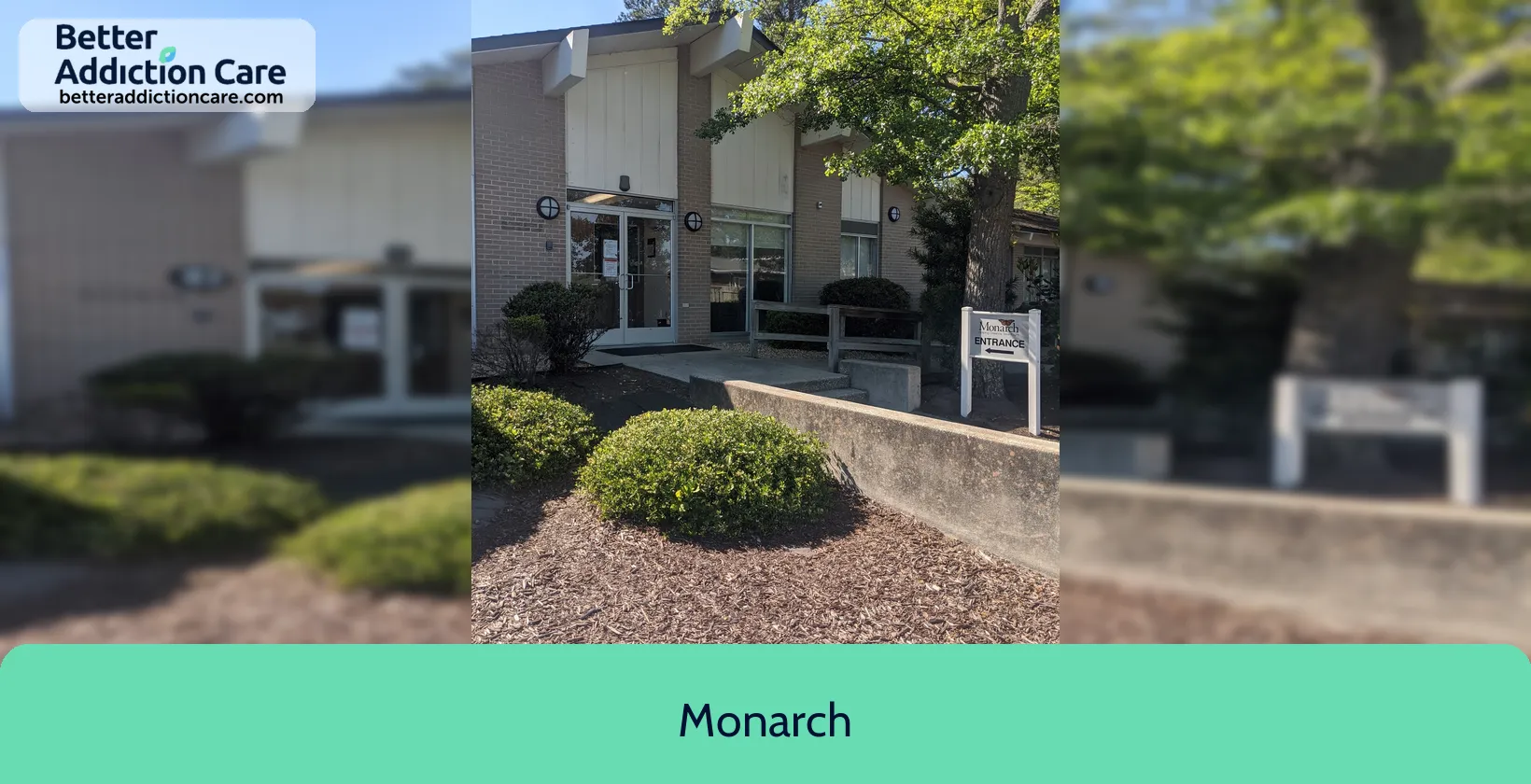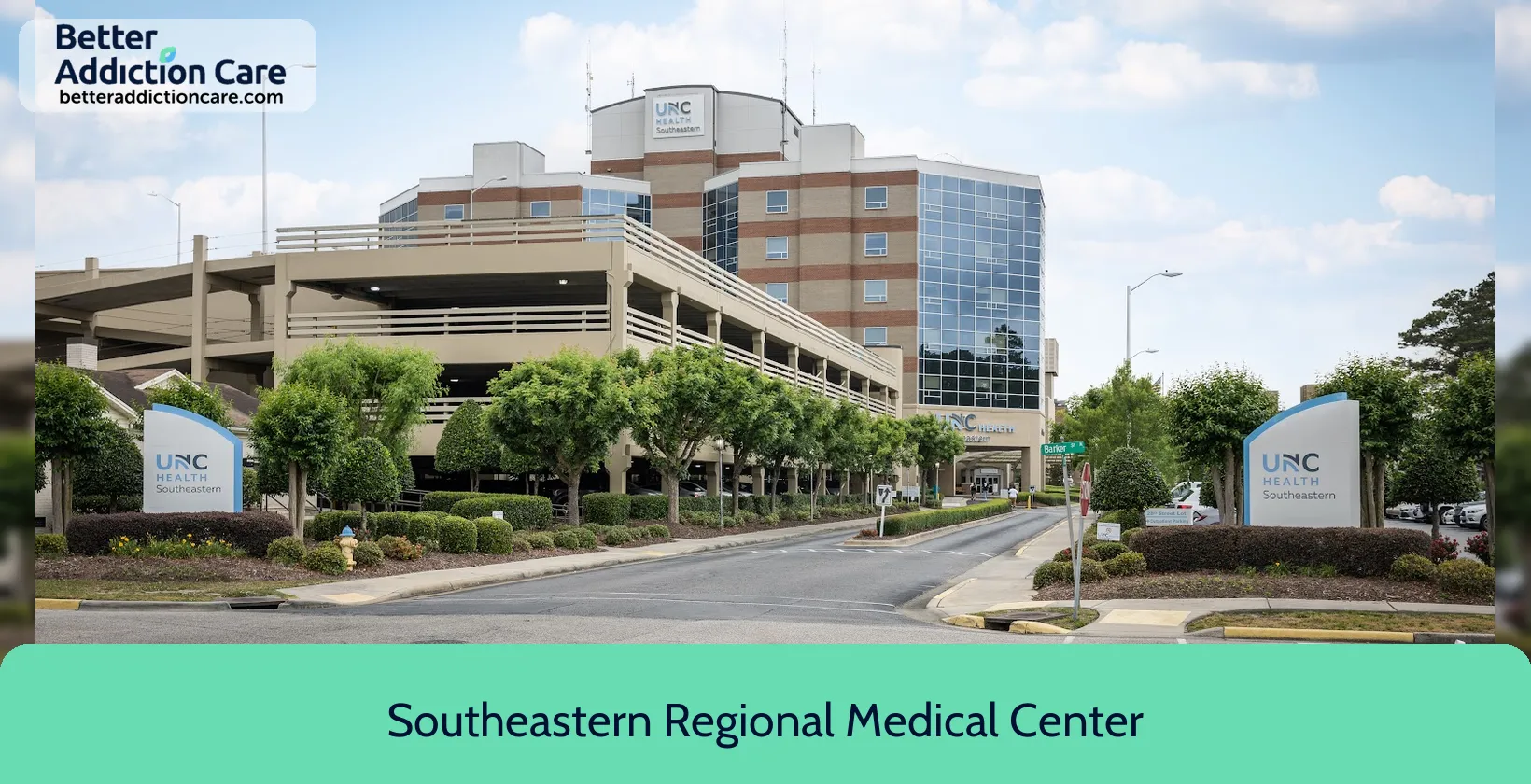RHA Behavioral Health NC

Overview
RHA Behavioral Health NC, located in Lumberton, North Carolina, provides comprehensive mental health care to both children and adults. The facility offers a variety of services tailored to meet the diverse needs of its patients, including transition management services, peer support services, and substance abuse comprehensive outpatient treatment.
Outpatient therapy is available in multiple formats, including individual, group, and family sessions. Additionally, the facility provides intensive in-home services to support patients in their own environments. Comprehensive clinical assessments are also available to ensure accurate diagnosis and effective treatment planning.
For added convenience, RHA Behavioral Health NC offers walk-in clinics on Monday, Wednesday, and Friday from 8:30 to 11:00, allowing patients to access care without prior appointments.
RHA Behavioral Health NC at a Glance
Payment Options
- Cash or self-payment
- Medicaid
- State-financed health insurance plan other than Medicaid
- Private health insurance
- Federal, or any government funding for substance use treatment programs
Assessments
- Screening for tobacco use
- Comprehensive mental health assessment
- Comprehensive substance use assessment
- Outreach to persons in the community
- Screening for mental disorders
Age Groups
- Seniors or older adults
- Adolescents
- Young adults
- Children/adolescents
- Adults
Ancillary Services
- Case management service
- Domestic violence services, including family or partner
- Mental health services
- Social skills development
Highlights About RHA Behavioral Health NC
7.33/10
With an overall rating of 7.33/10, this facility has following balanced range of services. Alcohol Rehabilitation: 8.00/10, Drug Rehab and Detox: 7.85/10, Insurance and Payments: 6.00/10, Treatment Options: 7.46/10.-
Alcohol Rehabilitation 8.00
-
Drug Rehab and Detox 7.85
-
Treatment Options 7.46
-
Insurance and Payments 6.00
Accreditations
State mental health department:
State mental health department accreditation refers to the process of evaluating and certifying the quality and standards of a state's mental health department, ensuring that it provides high-quality services and meets specific criteria for mental health care. The accreditation process is performed by a third-party organization and helps to improve the overall care and treatment of individuals with mental health conditions.
Treatment At RHA Behavioral Health NC
Treatment Conditions
- Mental health treatment
- Substance use treatment
- Co-occurring Disorders
Care Levels
- Outpatient
- Outpatient methadone/buprenorphine or naltrexone treatment
- Outpatient day treatment or partial hospitalization
- Intensive outpatient treatment
- Regular outpatient treatment
Treatment Modalities
- Cognitive behavioral therapy
- Telemedicine/telehealth therapy
- Substance use disorder counseling
- Trauma-related counseling
- Smoking/vaping/tobacco cessation counseling
Ancillary Services
Additional Services
- Pharmacotherapies administered during treatment
- Mentoring/peer support
- Drug or alcohol urine screening
Special Programs
- Clients with co-occurring mental and substance use disorders
- Veterans
- Members of military families
- Criminal justice (other than DUI/DWI)/Forensic clients
- Pregnant/postpartum women
Get Help Now
Common Questions About RHA Behavioral Health NC
Contact Information
Other Facilities in Lumberton

7.05

7.14

6.50

6.97

6.77

6.83

7.02
DISCLAIMER: The facility name, logo and brand are the property and registered trademarks of Southeastern Regional Medical Center, and are being used for identification and informational purposes only. Use of these names, logos and brands shall not imply endorsement. BetterAddictionCare.com is not affiliated with or sponsored by Southeastern Regional Medical Center.
